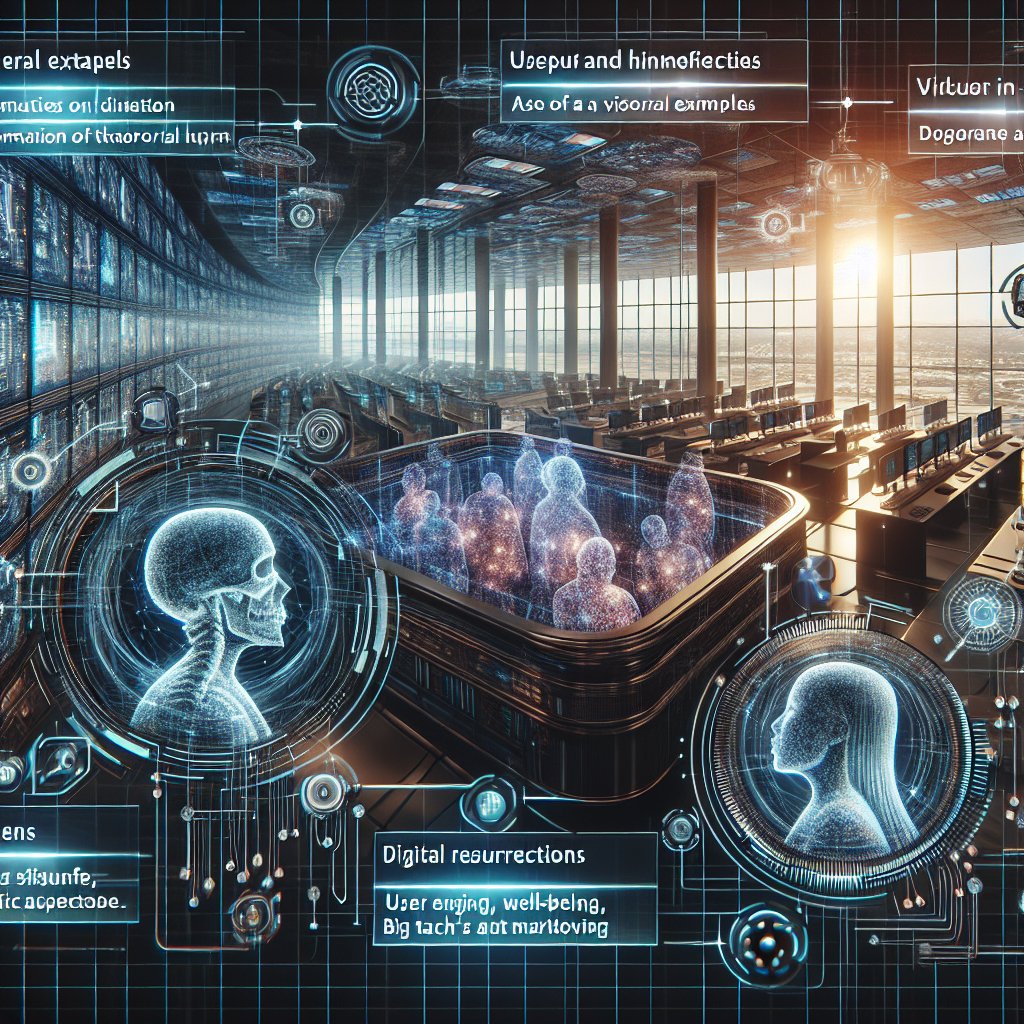Image created by AI
Resurrecting the Deceased: A Dive into AI's Ethical Quandary
In a profound demonstration of technological advancement, Artificial Intelligence (AI) is presenting the possibility of keeping our loved ones "alive" through digital resurrections. This development comes with mixed reactions, stirring debates over its implications on user well-being and its confrontation of moral and ethical boundaries.
AI engines like Replika and StoryFile have crossed the threshold, using textual and visual data to create conversations with representations of the deceased, offering comfort and a semblance of presence to those in mourning. In a notable case, the digital afterlife company Eternos enabled Michael Bommer, before his demise, to leave behind an interactive digital essence for his family—a poignant, if not unsettling, keepsake.
The virtual reunion of a South Korean mother with her daughter's AI recreation in 2020 sparked an intense online discourse. While some users view this technology as a therapeutic tool for coping with insurmountable grief, experts like Alessandra Lemma from the Anna Freud National Centre for Children and Families caution against the prolongation of the mourning process.
Jason Rohrer's Project December and Robert LoCasio's Eternos emphasize the consensual and privacy-focused aspects of their initiatives, yet concerns persist. As AI data centers' environmental footprints grow, and Big Tech's market-driven approach raises red flags, the dilemma remains whether the pursuit of a digital legacy outweighs the potential risks and ethical considerations.










